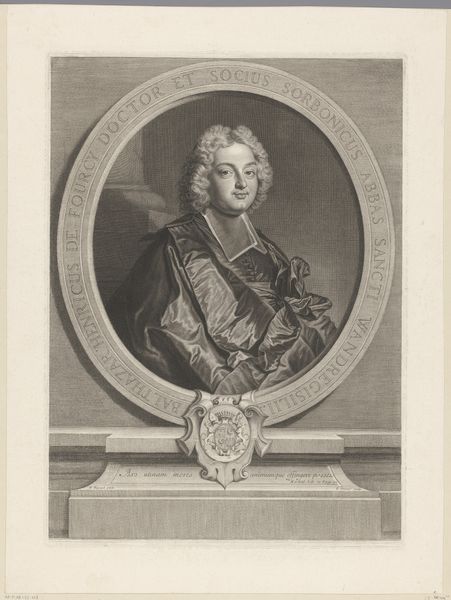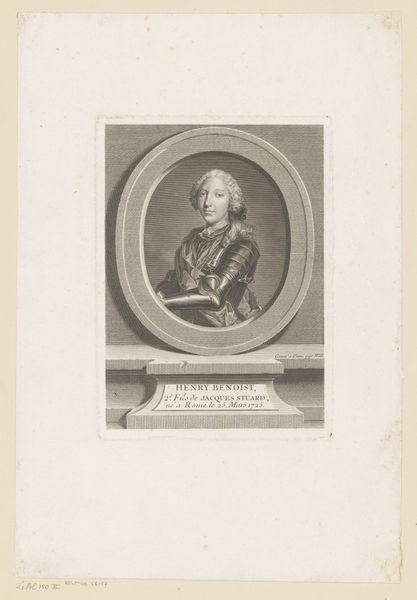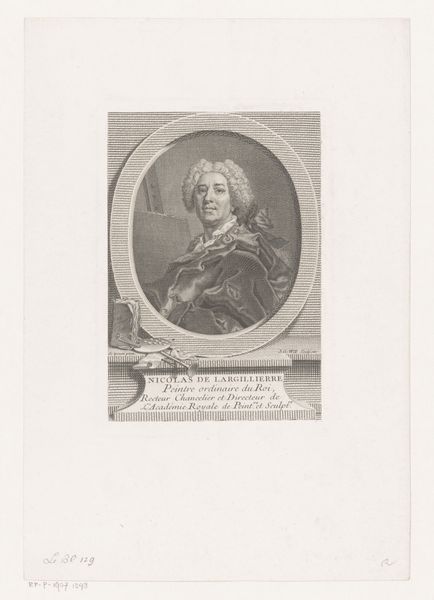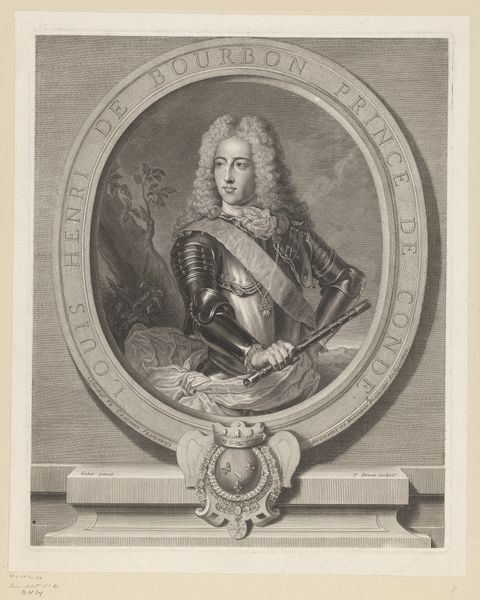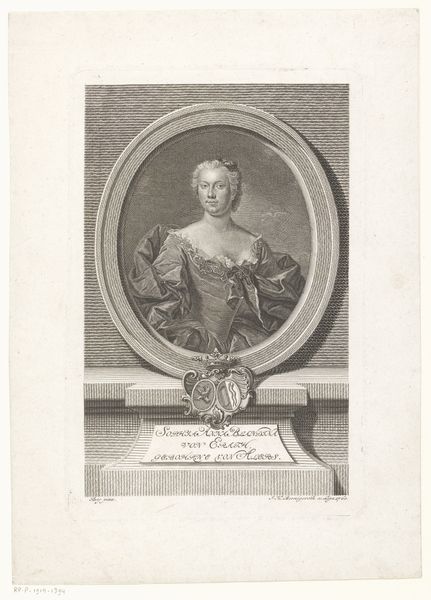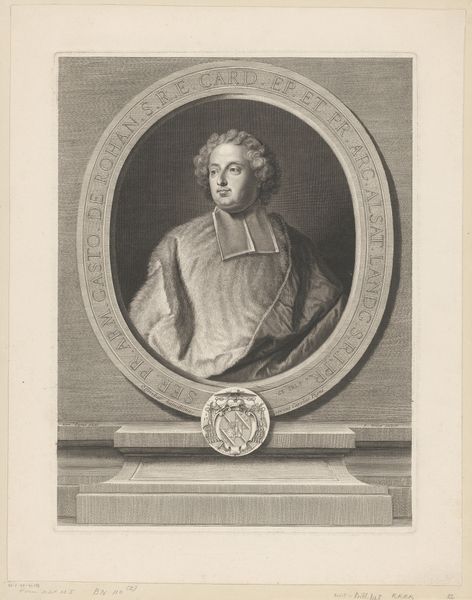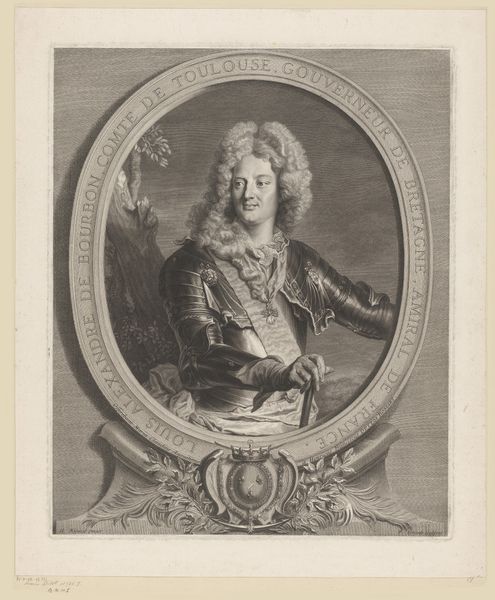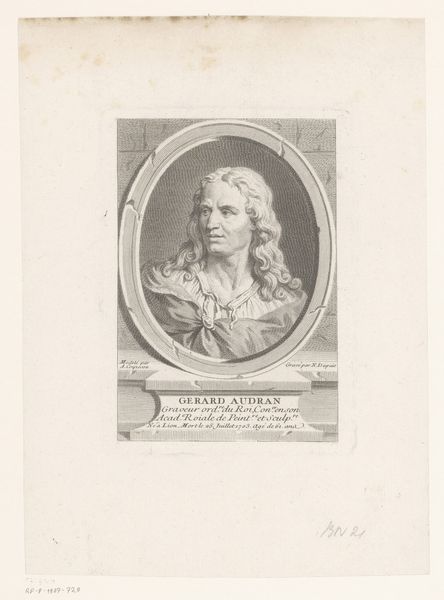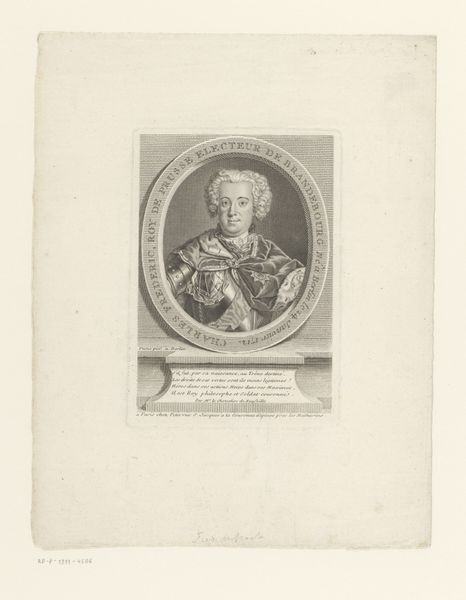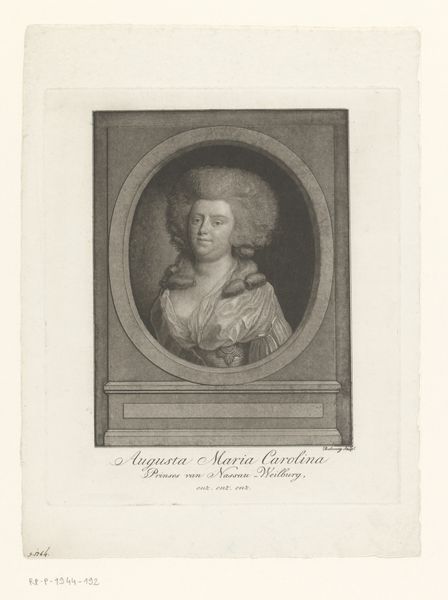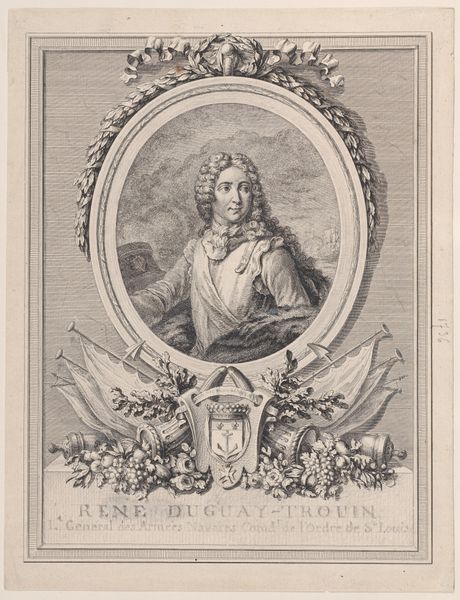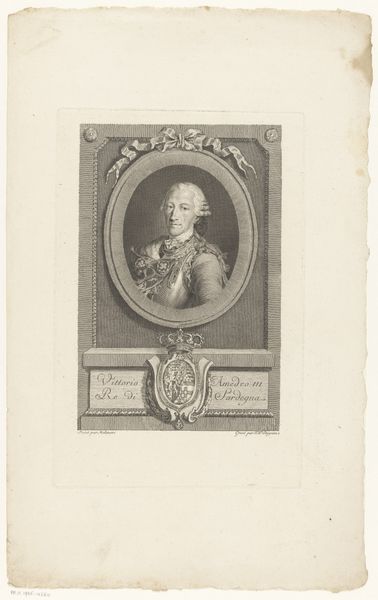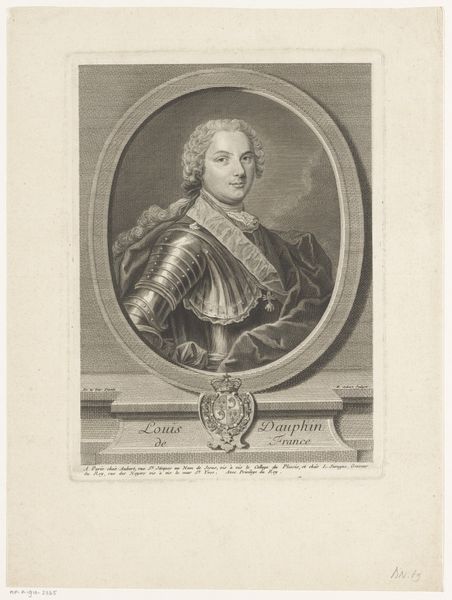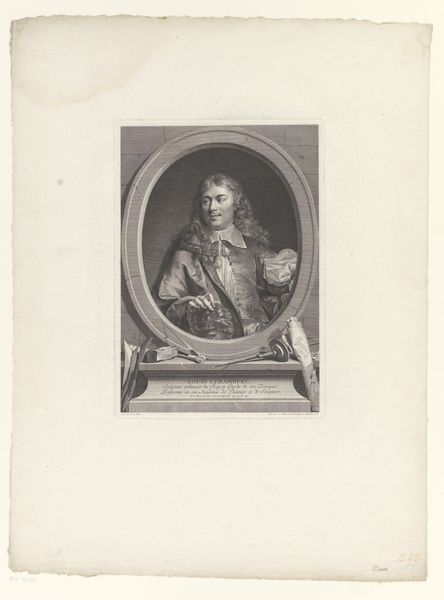
print, engraving
#
portrait
# print
#
history-painting
#
engraving
#
rococo
Dimensions: height 373 mm, width 252 mm
Copyright: Rijks Museum: Open Domain
Editor: We're looking at Jean Daullé's "Portret van Lodewijk van Frankrijk," made between 1739 and 1763, here at the Rijksmuseum. It’s an engraving. I'm immediately drawn to the ornate frame within the print itself. What structural elements stand out to you? Curator: The most striking feature is certainly the oval frame isolating Louis, setting up a dialogue between contained artifice and implied infinity as represented by the clouds in the background. The balance achieved through the symmetrical placement of clouds and the inscription below indicates a deep consideration for formal arrangement. How do you interpret Daullé's choices for textures and tonal range? Editor: The delicate lines of the engraving create such a variety of textures, from the smooth skin to the intricate embroidery. The tonal range is impressive too, giving depth to what could have been a flat image. The artist managed the texture and lighting. What does the limited use of perspective provide? Curator: The subtle variations, almost imperceptible, construct a visual hierarchy that subtly directs the viewer's gaze toward Louis' face. A flattened perspective pushes him forward, making him the indisputable focus. The curve of the frame plays nicely with the figure's form, each accentuating the other's presence within the composition. What message do you feel that creates? Editor: It really forces us to focus on him, stripping away distractions. Now that you point it out, the limited perspective also creates an interesting tension, almost as if the figure is both present and a representation. Thanks, I see a completely new picture now. Curator: Indeed, understanding formal elements invites deeper appreciation of not just *what* is depicted, but *how* it is presented. The engraving presents an exquisite tension between presence and portrayal.
Comments
No comments
Be the first to comment and join the conversation on the ultimate creative platform.
